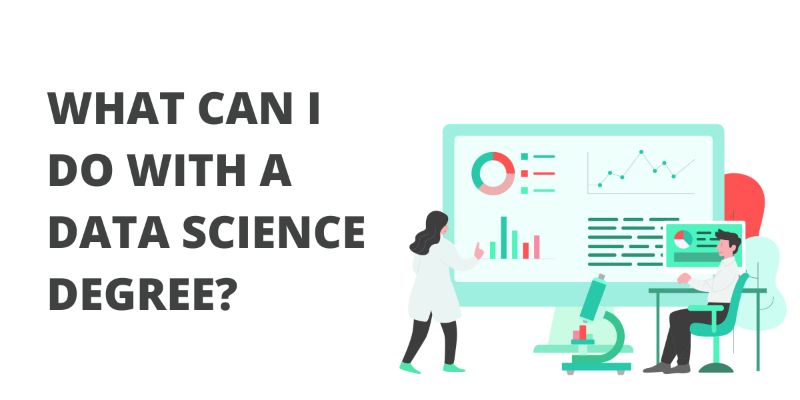
What is Data Science?
In 2018, 5 companies of Big Tech brought in 68% of US GDP growth and a core driver of this growth was data science, the field charged with developing new methods for putting to use the massive instreams of data generated by big tech operations. While someone with an actuarial science degree will focus more on information generated by interplay of traditional mathematics, the data scientist focuses more on information generated by data funnels of big tech.
Data science is a relatively new field within Big Tech or at least its modern iteration suggests an inherent reliance on programming and computing that has really only become centric to the industry in the last decade or so.
Data science represents a win-win for the US economy, since it is able to save consumers money while simultaneously increasing companies’ profit margins as well through improving operational efficiency.
Martin Schedlbauer, doctor of data science at Northeastern University collecting, suggests that data scientists are masters of computation whose profession is defined by “shaping, storing, managing, and analyzing data.” This is commonsensical when one considers that the primary concern of data science is the information or data generated by modern technology–specifically enabled by the advanced computational power of computers and their programs. It is thus only natural that data scientists master not only data analysis but that which generates the data as well.

The Job Market of Data Science is Booming
As technology continues to drive a deeper understanding of our world, data scientists stand at the forefront of this search for answers. For the first time in human history, virtually any question based on consumer behavior or market statistics can be answered.
It should then be no surprise that data science consistently ranks as one of the strongest professions in the American job market. In fact, Glassdoor named data science the number one job in the economy four years in a row. The Bureau of Labor Statistics reports that employment within this field will rise by 27.9% through 2026, a figure of growth which is nothing short of astronomical.
Consider these Points
- A job market expanding at this rate means that professionals have a great deal of professional autonomy, meaning they have greater power of choice in deciding where to work.
- Data science is a highly mobile profession, meaning one can break into many different or seemingly unrelated industries with data science as an entrypoint.
- Data science is at the forefront of bleeding edge tech, meaning it is a solid choice if you want to work in the highest levels of big tech innovation.
- Career opportunities within data science are highly lucrative as well.
- But given the newness of this profession, a higher education is of more interest to employers.
- A large majority of data scientists hold a master’s degree–with some figures suggesting as high as 88%.
Choices in Data Science: Business and Data Science
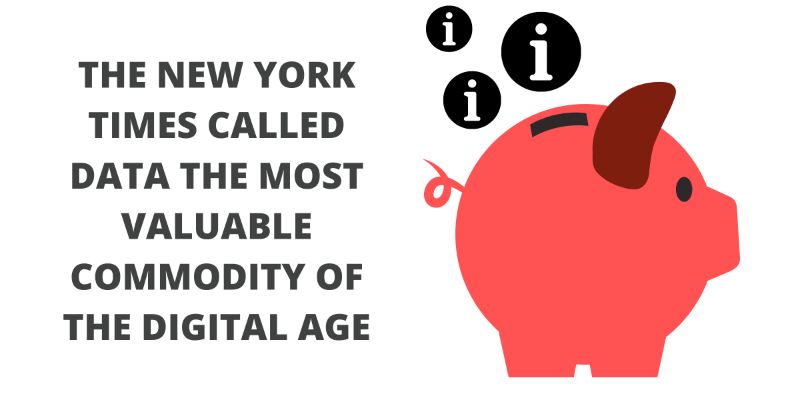
In terms of career paths, it is important to mention early on that “data science’ refers to a specific career path but it also refers to a subject of study–in the same way that someone might study psychology or become a psychologist with many differences between the two. And in much the same way, the path between the career of the data scientists and the path of studying data science can differ drastically depending on the context of study or the context of a job type.
Because you will likely need to pursue a bachelor’s or master’s degree to excel within the field of data science, you will need to decide early on what your focus will be in the long-term. In doing so, consider the following points.
- Despite the value of data science to business operations, data scientists typically shy away from the MBA with only a small percentage holding one.
- If you wish to combine data science with an MBA you will likely want to consider one of the best MBA IT programs that can combine the technical knowledge of data science with business theories of an MBA.
- Another area of overlap between business and data science occurs in MBA programs of information and cybersecurity. An accompanying benefit of this path of study is that there are some excellent accelerated online MBA programs in information and cybersecurity.
Due to the implicit distinction between the highly technical skills of data science roles and the more qualitative and comprehensive tasks of business however, pursuing expertise in both data science and business simultaneously–beyond the common areas of overlap mentioned above–can be difficult. While this divide can certainly be overcome for those who desire a business-centric career in data science or to start your own business, it will require both premeditation and preparation.
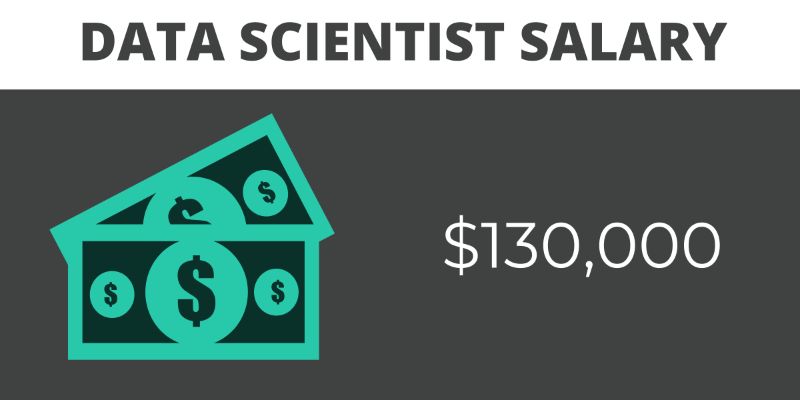
If you decide to focus entirely on a career in data science you will be able to pursue some highly impressive job types. Below is a list of some of the most in-demand jobs for a professional data scientist.
Resources for MBA and Business:
- What can I do with an MBA?
- What can I do with an Information and Cybersecurity MBA?
- The best online Real Estate MBA programs
- The 50 best business schools in North America
- The 15 best one-year MBA programs online
- The 10 best online marketing MBA programs
- The 10 best online MBA IT programs
- The 10 best online Entrepreneurship MBA programs

Top 10 In-Demand Data Science Jobs
- Machine Learning Engineer
Average Salary: $114,121
These professionals employ highly technical skills in computation, programming, and software engineering. Unlike machine learning scientists, engineers are tasked with running and maintaining machine learning programs, which are designed to fulfill an organization’s performance goals.
- Machine Learning Scientist
Average Salary: $114,121
These professionals are tasked with conducting the research and experiments which preface an engineer’s responsibilities. Machine learning scientists work in a professional capacity to develop new strategies and innovations within the field. Professionals can expect this field to be skewed heavily towards research, which in machine learning consists of designing and running experimental programs in order to test their outcomes.
- Applications Architect
Average Salary: $113,757
Applications architects work within roles that incorporate aspects of both machine learning science and engineering, that is, they specialize in analysing the applications used by an organization in order to develop plans for optimizing them. This often entails conducting research on how to further develop existing inter-functionality between applications, or engineering new functionalities if needed.
- Data Scientist
Average Salary: $113,309
Data scientists are professionals tasked with turning both raw and processed data into actionable information that matches organizational goals. Data scientists differ from data analysts in that data science relies much more on highly technical skills, such as programming, software engineering, and computational knowledge–whereas data analysts employ a more qualitative approach that often incorporates interdisciplinary theory.
- Enterprise Architect
Average Salary: $110,663
Enterprise architects are the professionals responsible for pairing an organization with the most beneficial and productive technologies. For this reason, these professionals often become masters of many different types of technology–from computers and other hardware interfaces to programs and software. These responsibilities naturally lend themselves to working within a consultation capacity to either coach client organizations, or work in a tech agency to offer plans for in-house projects.
- Data Architect
Average Salary: $108,278
Data architects are the professionals charged with designing access procedures and storage protocols for data storage and applications. If you think of data as a house, then the data architect makes sure each room of the house serves a purpose and that the different parts of the house are accessible to the people meant to go there.
- Infrastructure Architect
Average Salary: $107,309
Infrastructure architects are data scientists concerned with an organization’s development at the macro level, that is, the infrastructure architect’s job is to ensure that an organization is making the necessary preparations to adapt to evolving technologies–either those currently in use at the organization, or those that will need to be incorporated in the near future. In many cases, these professionals specialize in a specific type of architecture such as cloud infrastructure.
- Data Engineer
Average Salary: $102,864
Data engineers are responsible for making data available for other data scientists, and as such they will design and optimize data funnels to ensure this is a productive exchange. Data engineers often work closely with organization managers and data scientists to make sure that data funnels accomplish the desired functionality while also creating a constructive inflow for the data scientists.
- Business Intelligence (BI) Developer
Average Salary: $81,514
Business intelligence developers work at the intersection of the highly technical aspects of data science with the qualitative strategizing of business. Put in the most simple terms, these professionals work toward improving a business’ decision making process to ensure that the process incorporates the most helpful technology and a modern approach to data management.
- Statistician
Average Salary: $76,884
Statisticians work in between the highly technical worlds of data science and the more approachable world of business mathematics. For this reason statisticians are usually tasked with presenting data collected by scientists and engineers in a more presentable and digestible manner. Because of this statisticians usually need both a strong foundation in data science and in social skills of presentation, since statisticians are often the professionals who brief shareholders or project managers on target updates.
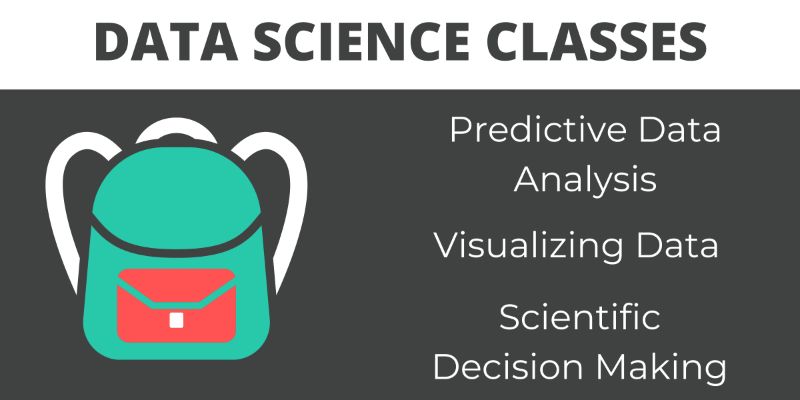
Paths in Data Science: Questions to Ask
Here is a list of some of the most important decisions you will need to make early on in your path to becoming a data scientist:
- Choose between a focus on theory or practice. That is, will you want to teach or put your skills to work in the job market?
- A further decision along these lines is whether to focus on the theoretical or the qualitative aspects of data science within your education, which will likely prepare you more for top-down or bottom-up approaches respectively.
- Though it should be noted that nearly 9 out of 10 data scientists hold quantitative backgrounds, according to kdnuggets.com.
- Choose your desired area of focus. The most commonly held degree among data scientists is computer science–but programs offering such degrees differ widely from school to school.
- A helpful tip in deciding this is to consider your personality, that is, whether you are someone who likes to plan out a path in order to arrive at a specific destination, or if you are someone who prefers to go with the flow and capitalize on opportunities as they present themselves.
- If you are the former you may want to focus on developing skills that are generally of steady demand with projections of continued usefulness. If you are the latter you may be more comfortable in developing more niche skill sets.
- Choose between online or traditional education. A great feature of a high tech field such as data science is its willingness to incorporate advanced tech within its own education model, meaning many data science programs can be completed entirely online with the best digital learning tech on the market. Check out this article for a ranking of the best online master’s of data analytics available in 2020.
- Decide on an end-point for your education. Given the competitive nature of the job market which most values higher education and work experience in compensation and upward professional mobility, you will want to make an efficient plan of action.
- For instance, if you are planning on entering the job market with a bachelor’s degree you will likely want to line up internships in-between semesters to become as appealing to employers as possible.
- Otherwise if you plan on pursuing graduate education, you may want to consider an accelerated bachelor’s degree program which can cut down on an otherwise demanding investment of time.
Undergraduate and Graduate Degrees in Data Science
While data science itself represents a linear career path, as an area of study there are numerous entry points. Various degree programs offer course curriculum designed to prepare students for a career with varying levels of participation in data science. If you enjoy the idea of data science but did not find interest in the listing of data science careers, you may want to consider one of these degree paths.
- Computer Science
- Computer Engineering
- Software Programming
- Software Engineering
- Data Analytics
- Data Science
- Data Visualization
- MBA
- Business Intelligence
- Business Analytics
- Statistics
- Information and Cybersecurity
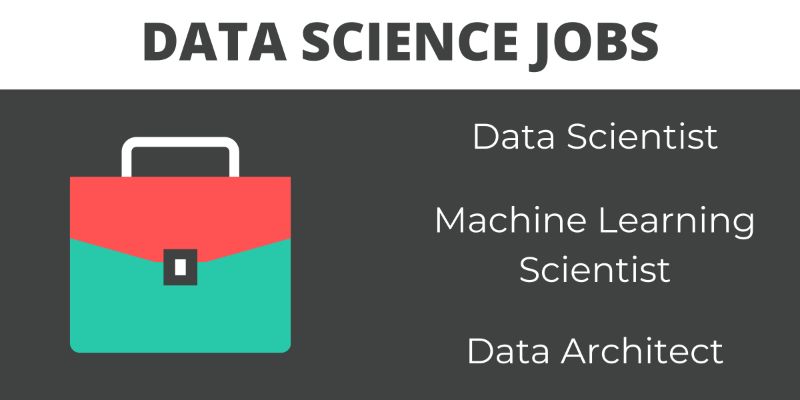
Business Intelligence
For any student who is dissuaded by the tendency of data science jobs to require graduate level education, a viable alternative is to shift a focus to business intelligence. Unlike the overlaps between data science and the MBA mentioned above, business intelligence is a field that still retains a hard focus on the highly technical skills of data science, but tempers those requirements with the qualitative aspects of business.
Therefore these careers often value business experience alongside the technical knowledge of business intelligence, which means employers are more likely to forgive a lack of graduate education if the candidate shows demonstrable business experience. A degree is business intelligence will also represent an excellent option for entrepreneurs interested in starting their own business.
Top Skills for Business Intelligence / Data Science
Business intelligence professionals work closely with company shareholders, marketing and sales teams, as well as the technical departments of data scientists and engineers. Given the drastically different roles of working with each of these groups, business intelligence is a career defined by mastering a wide array of skills.
According to Harvard School of Business, these are the top skills required for a successful career in business intelligence.
- Communication Skills
One of the primary differentiators between data science and business intelligence is the increased focus of communicating with different parts of the company in business intelligence. Business intelligence professionals need to be able to talk to the tech department and shareholders with equivalent finesse.
- Curiosity
Both business intelligence and data science rely on an exhaustive search for understanding how various components of industry and technology meet in order to drive performance in key vectors of an organization. What will drive professionals to better understand this dynamic is curiosity if not sheer ambition.
- Problem Solving
If there is one thing that data science and business intelligence have in common, it is the fact that both careers are essentially infinite-problem-solver-simulators. Both careers are designed entirely to deal with a real time stream of industry challenges and local problems arising in the organization.
- Critical Thinking
Data scientists and business intelligence professionals both thrive on their ability to critically assess a situation. All the data management technology in the world will not help a company if they do not know what data to pursue in the first place. Being able to critically assess not only what information is valuable but why it is valuable is what separates the amateurs from the professionals.
- Visualization Skills
Being able to visualize the links between seemingly separate data sets is crucial for both the data scientist and the business intelligence professional. This skill is undeniably crucial for the business intelligence professional though, as oftentimes they are tasked with presenting near-incomprehensible data to shareholders or business managers who have none of the technical knowledge of those who generated the data.
Thus it is their job to come up with creative ways to visually present data in a format that is easy to understand–a feat which requires a deep understanding of technical knowledge and visualization skills.
- Detail Orientation
In both data science and business intelligence, entire batches of data can be totally ruined if a single number or concept is misunderstood. As such, these professionals must have a natural inclination towards detail orientation.
- Big Picture Perception
At the same time, these professionals–especially business intelligence professionals–must understand how even the most minute details of data relate to the picture goals of an organization or the industry within which the organization functions. Business intelligence professionals, for instance, need to understand how the high tech work of data scientists contributes to the company’s real and measurable daily performance metrics that its managers can better understand.
Resources for Data Science, Data Analytics, and Business Intelligence
- 10 best online Master’s in Data Analytics
- What can I do with a Business Analytics Bachelor’s Degree?
- What can I do with a Business Analytics Master’s Degree?
- 10 fastest online Master’s of Business Analytics
- 10 most affordable Business Intelligence Master’s
- 15 best online Business Intelligence Master’s
- 25 best Business Intelligence Master’s
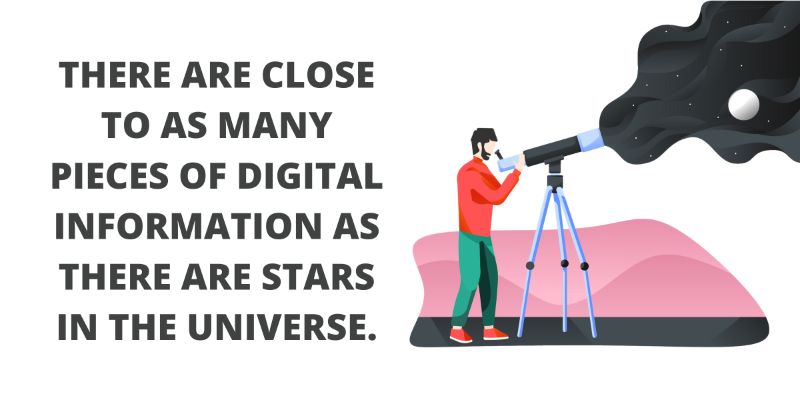
Alternative Specializations – Mathematics, Statistics, and Actuary Science
Much like how a data scientist may wish to pursue study in business intelligence if he or she desires a focus on the more qualitative elements of business, one may wish to pursue study in mathematics and statistics if one wishes to focus more on the purely quantitative rather than the programming and computational elements of data science.
In other words, many data scientists decide that they do not wish to learn computer programming or software engineering, and instead decide to focus more intently on the value of mathematical calculation. These statisticians may still work alongside other data scientists who program and code, but statisticians will focus more on delving deep into generated data to see if they can glean any further value without the need of program or machine assistance.
Actuary science is the field that takes this to the extreme. While the schooling and academic rigor of actuary science has reached near mythical proportions, they are revered as some of the most accomplished and brilliant minds on the planet. These professionals are paid very well, since in many cases they are able to achieve through simple computation what would have taken weeks for a data scientist to learn from an engineered data-generating computer program.
Resources for Mathematics, Statistics, and Actuary Science
Master’s Programs
- What can I do with an Actuarial Science Master’s Degree?
- What can I do with a Master’s of Mathematics and Statistics?
- 10 fastest online Master’s of Mathematics and Statistics
- 10 most affordable online Master’s of Mathematics and Statistics
- 15 best online Mathematics and Statistics Master’s
- 25 best Mathematics and Statistics Master’s
- 10 fastest online Actuarial Science Master’s
- 10 most affordable online Actuarial Science Master’s
- 15 best online Actuarial Science Master’s
- 25 best Actuarial Science Master’s
Bachelor’s Programs
- What can I do with an Actuarial Science Bachelor’s Degree?
- 10 fastest online Actuarial Science Bachelor’s
- 10 most affordable online Actuarial Science Bachelor’s
- 15 best online Actuarial Science Bachelor’s
- 25 best Actuarial Science Bachelor’s
Carrie Morris
Author
Warren Dahl
Editor-in-Chief
